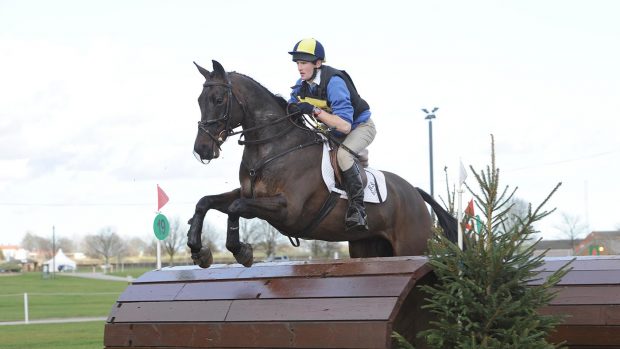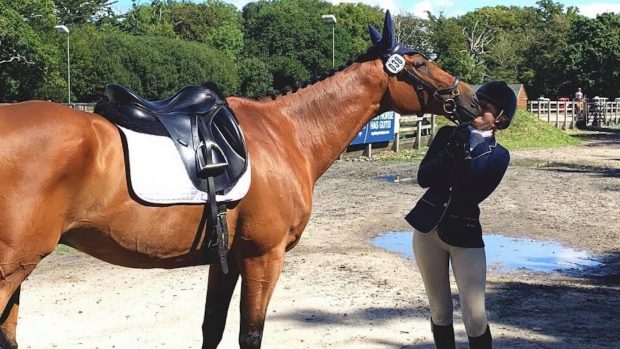Blue skies and a burgeoning competition schedule mean most riders long for the summer, but for some owners it’s not all plain sailing. Agnes Stamp meets one owner whose horse has been struggling with headshaking, and finds out what they've been doing to combat it
The horse: Benji, a 13-year-old 16.3hh eventer
The problem: headshaking
Symptoms: Frankie Lampl bought ex-National Hunt thoroughbred Benji in the summer of 2013. Looking back, Frankie admits he did headshake once or twice but “he was quite stiff and tense at the time so I put it down to schooling — it wasn’t enough to indicate a problem, plus I’d had him vetted.”
By the following summer, Benji’s headshaking was becoming more noticeable.
“It was particularly bad when we went past certain hedges,” remembers Frankie, “and worse at certain venues compared to others.”
The vet gave Benji a full workup, including X-rays and blood tests, which diagnosed his headshaking as a probable allergy.
By July 2016 Benji’s headshaking was so bad could barely get through the dressage and he would violently rub his face against the side of the lorry. This year the headshaking has started even earlier — in February — and seems to be getting worse.
“It is visibly distressing for him,” says Frankie. “If it continues on its current path, retirement in a field does not look like an option. If only I could cryogenically freeze him over summer — he’s a fabulous hunter.”
Continued below…

Laminitis: how to spot the signs, plus a new treatment and ways to prevent it

Sweet itch in horses: what all horse owners need to know
Management strategy: after the vet’s initial diagnosis Benji was prescribed steroid inhalers (which didn’t seem to have an effect) but riding him in a nose net seemed to help. Frankie has also tried riding Benji in a fly mask, riding inside and riding in the evening.
“All these things gave occasional moderate improvement but it may just be coincidental,” says Frankie.
Frankie has also administered Piriton Allergy tablets, starting with a dose of six tablets daily in 2015. This year she plans to up the dose to 20-30 tablets a day.
“They should work as the headshaking was originally diagnosed as an allergy (the blood test showed histamine) but results were mixed last year — perhaps I didn’t give him enough.”
“Piriton is on the FEI prohibited substance list, so even if it works he will not be able to event any more. The priority for now is just to make him comfortable.”
If you are concerned about any summer ailments your horse is suffering from, please contact your vet
This article was first published in the 1 June 2017 issue of Horse & Hound magazine




